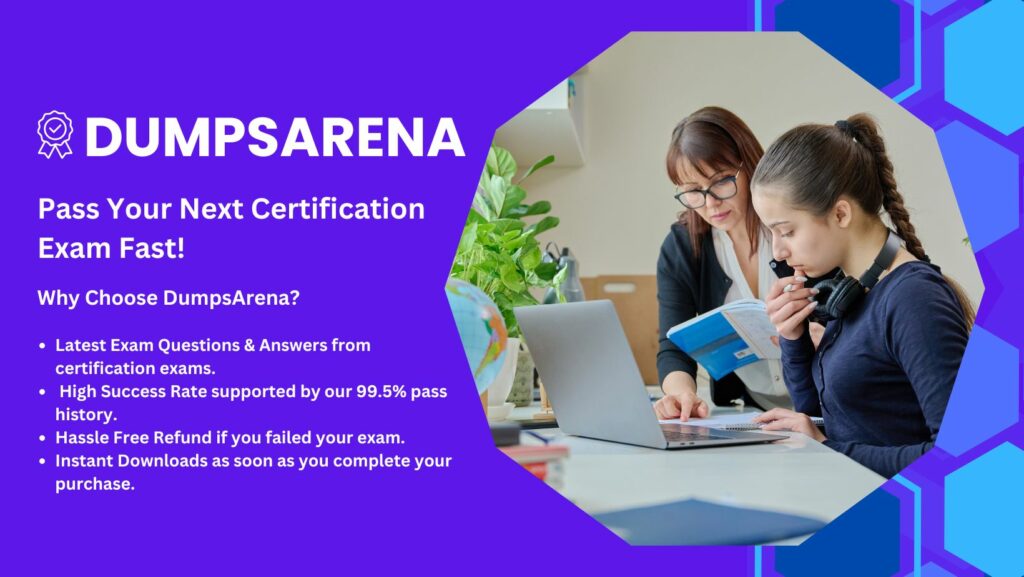In the realm of academia and professional certifications, the pursuit of knowledge and credentials often intersects with the temptation to seek shortcuts. One such shortcut is the infamous "exam dumps" – a term that resonates within the corridors of educational institutions and certification bodies alike. Exam dumps, repositories of purportedly real exam questions and answers, promise a quick path to success. However, beneath the allure of guaranteed results lies a complex web of ethical, legal, and practical considerations. In this article, we embark on a journey to dissect the phenomenon of exam dumps, exploring their implications for individuals and the integrity of education and certification systems.
Understanding Exam Dumps
Exam dumps, also known as brain dumps, are collections of questions and answers purportedly extracted from real exams. These resources are often marketed as study aids or practice materials, targeting individuals preparing for high-stakes assessments such as academic exams or professional certifications. Proponents argue that exam-dumps offer a glimpse into the format and content of actual exams, helping candidates familiarize themselves with potential questions and refine their test-taking strategies.

The Temptation of Instant Success
The allure of exam dumps is undeniable, particularly in environments where success is measured by the outcome of standardized assessments. For students and professionals facing pressure to perform, the promise of guaranteed success can be tantalizing. The prospect of bypassing rigorous preparation in favor of a shortcut to certification or academic advancement is an enticing proposition for many.
The Ethical Quandary
However, the use of exam-dumps raises profound ethical concerns. At its core, relying on exam dumps undermines the principles of meritocracy and academic integrity. By obtaining access to questions and answers prior to the exam, individuals gain an unfair advantage over their peers who choose to prepare through legitimate means. This not only distorts the competitive landscape but also erodes the credibility of the certifications and qualifications obtained through such means.
Legal Implications
Beyond ethical considerations, the use of exam dumps may also have legal ramifications. Many certification bodies and educational institutions explicitly prohibit the use of unauthorized materials, including exam-dumps, during the examination process. Violating these policies can result in severe consequences, ranging from the invalidation of test scores to the revocation of certifications or academic degrees. Moreover, the dissemination and distribution of exam-dumps may infringe upon intellectual property rights, exposing individuals involved in their creation or dissemination to legal liability.
Quality and Reliability
In addition to ethical and legal concerns, the quality and reliability of exam dumps remain questionable. While proponents tout exam dumps as accurate representations of real exams, the reality may be far different. The sources of exam dumps are often obscure, and their accuracy cannot be verified independently. Consequently, individuals who rely on exam-dumps may find themselves ill-prepared for the actual exam, leading to subpar performance and potential disappointment.
Safeguarding Academic and Professional Integrity
In the face of these challenges, educators, certification bodies, and regulatory authorities must take proactive measures to safeguard the integrity of academic and professional assessments. This includes implementing robust security measures to prevent the unauthorized dissemination of exam materials, as well as educating candidates about the risks and consequences associated with the use of exam-dumps. Furthermore, efforts should be made to emphasize the value of authentic learning and preparation, rather than succumbing to the allure of shortcuts.
Conclusion
Exam dumps represent a controversial and divisive phenomenon within the realm of education and professional certification. While they promise a shortcut to success, their use undermines the principles of academic and professional integrity, raising ethical, legal, and practical concerns. As individuals and institutions grapple with the implications of exam-dumps, it is imperative to prioritize authenticity, diligence, and ethical conduct in the pursuit of knowledge and credentials. In doing so, we can uphold the integrity of education and certification systems, ensuring that success is earned through merit and dedication rather than illicit shortcuts.
eventbrite.com eventbrite.com eventbrite.com eventbrite.com eventbrite.com eventbrite.com eventbrite.com eventbrite.com eventbrite.com eventbrite.com eventbrite.com eventbrite.com eventbrite.com eventbrite.com eventbrite.com eventbrite.com eventbrite.com eventbrite.com eventbrite.com eventbrite.com eventbrite.com eventbrite.com eventbrite.com eventbrite.com eventbrite.com eventbrite.com eventbrite.com eventbrite.com eventbrite.com eventbrite.com eventbrite.com eventbrite.com eventbrite.com eventbrite.com eventbrite.com eventbrite.com eventbrite.com eventbrite.com eventbrite.com eventbrite.com eventbrite.com eventbrite.com eventbrite.com eventbrite.com eventbrite.com eventbrite.com eventbrite.com eventbrite.com eventbrite.com eventbrite.com eventbrite.com
Comments (0)